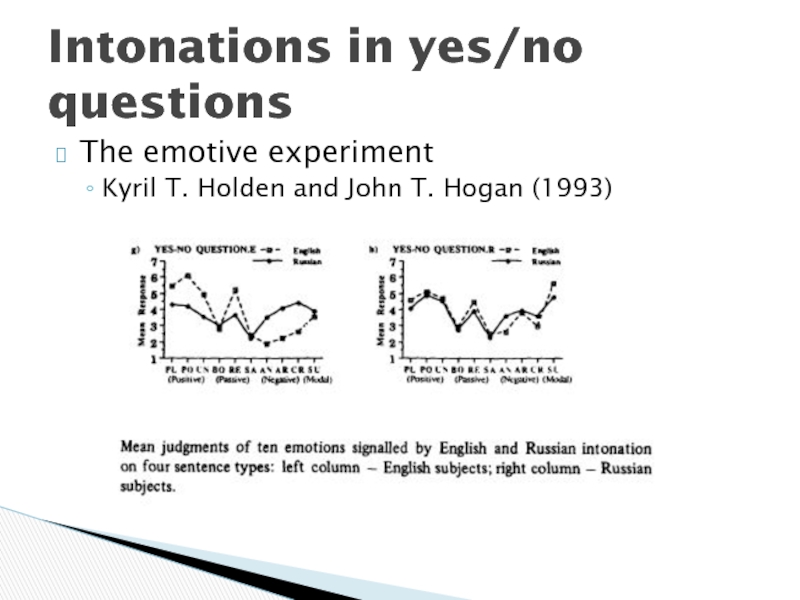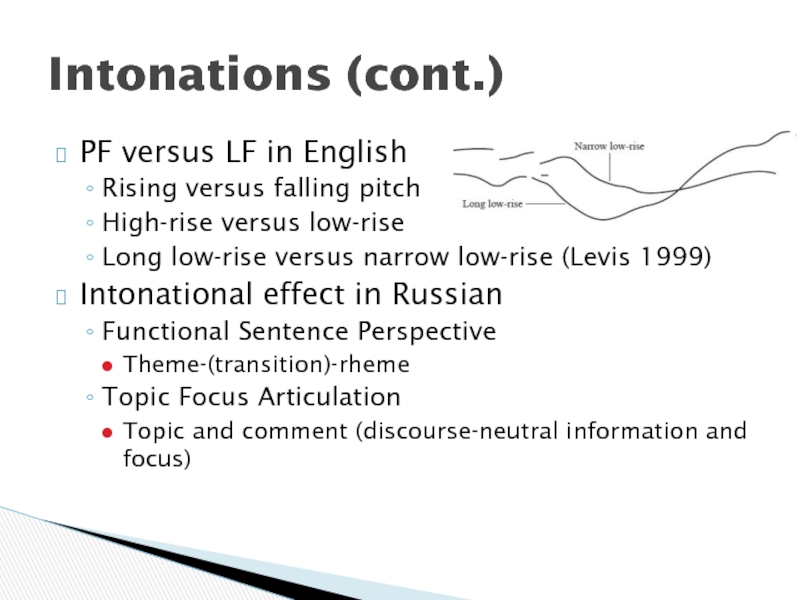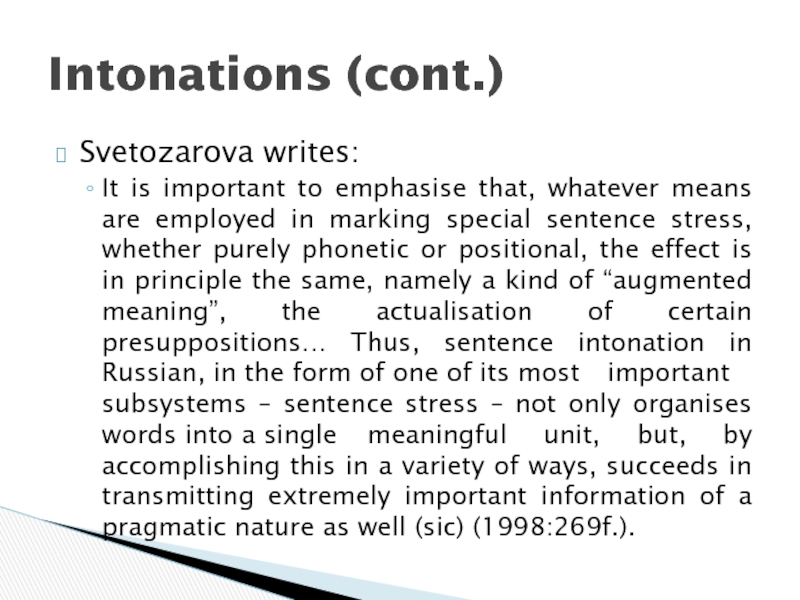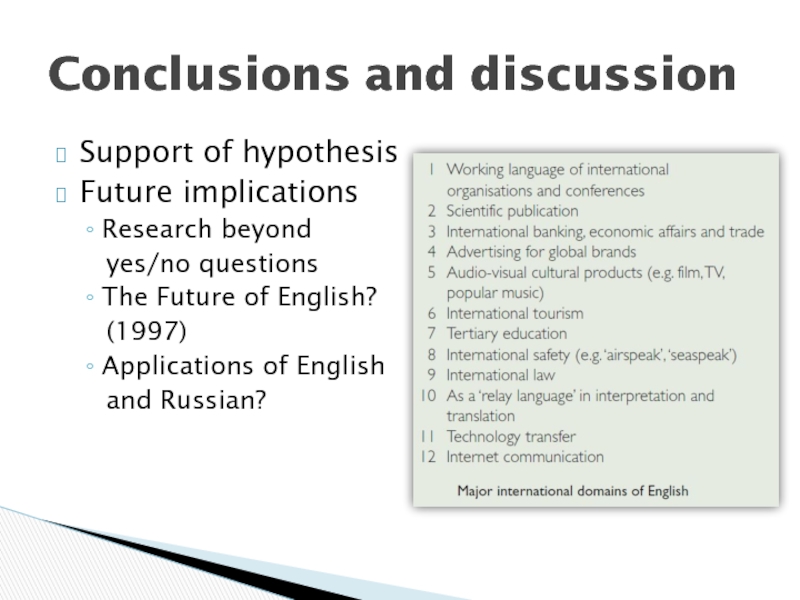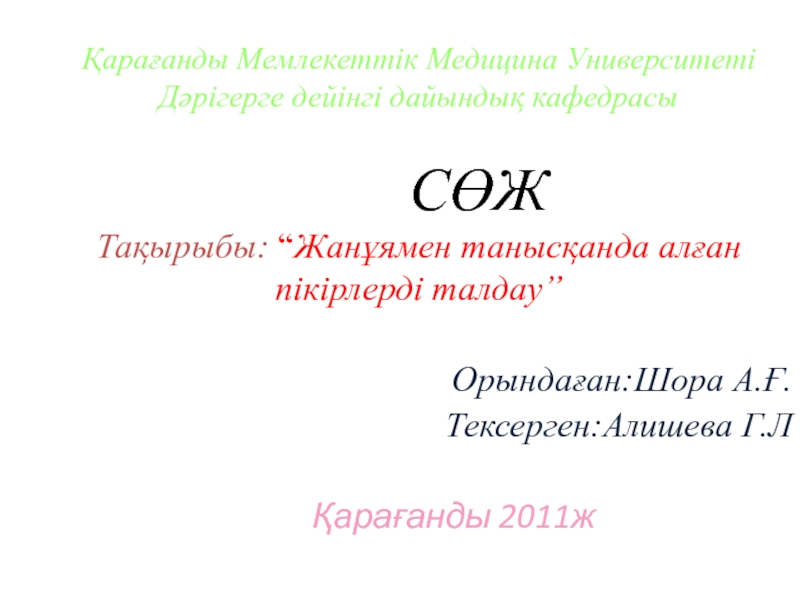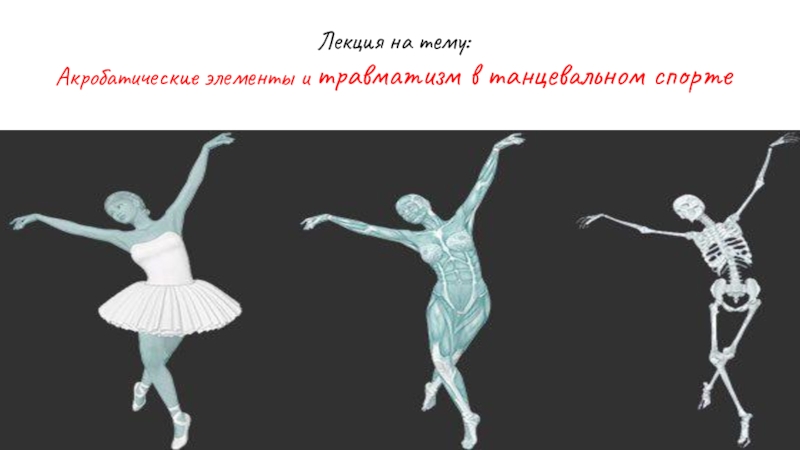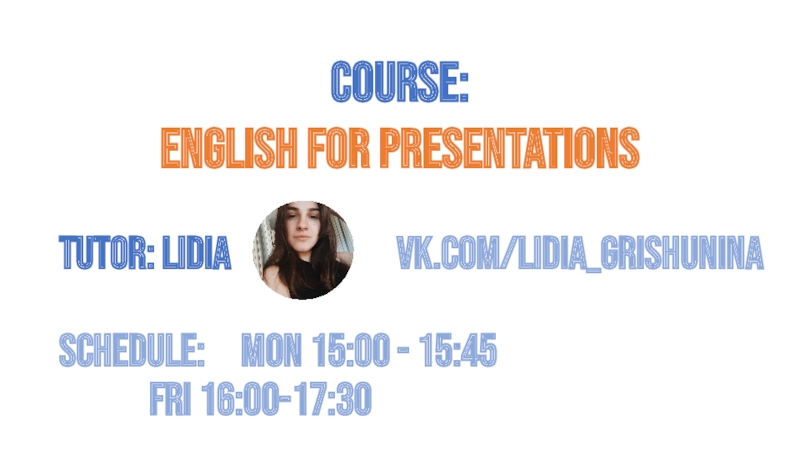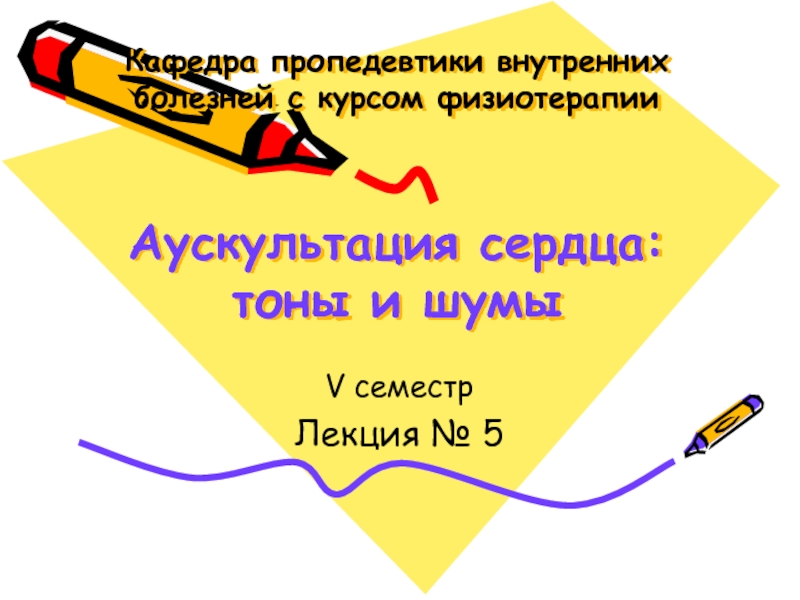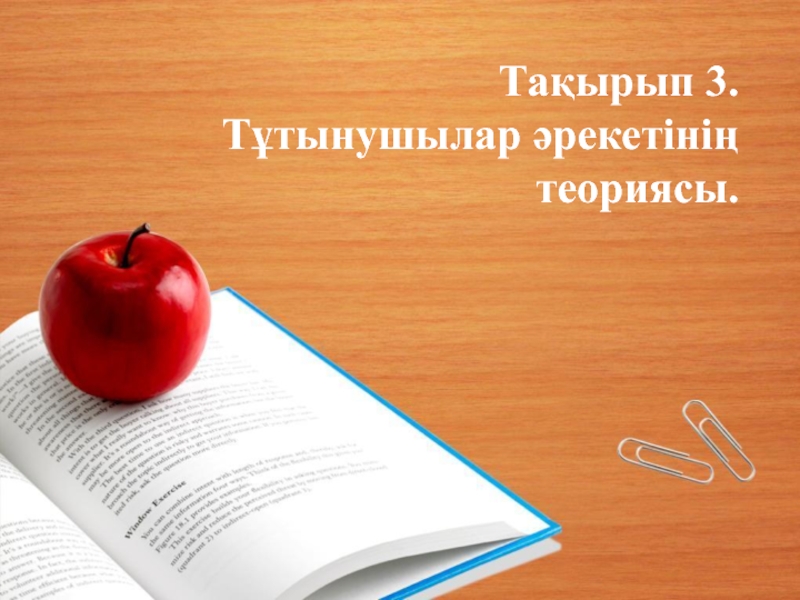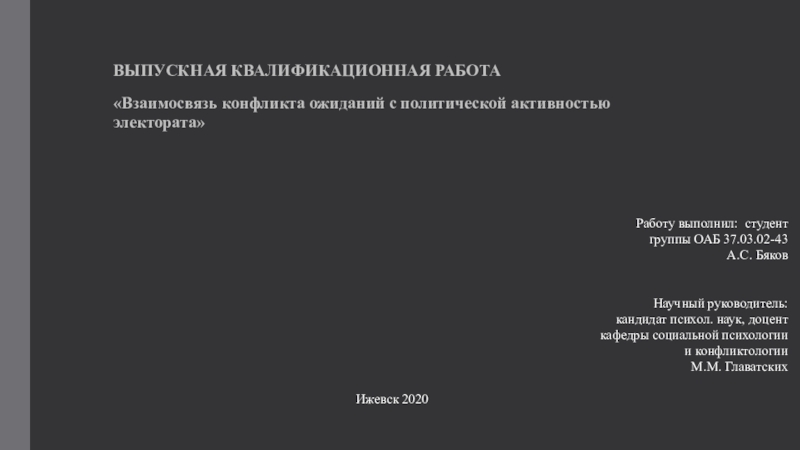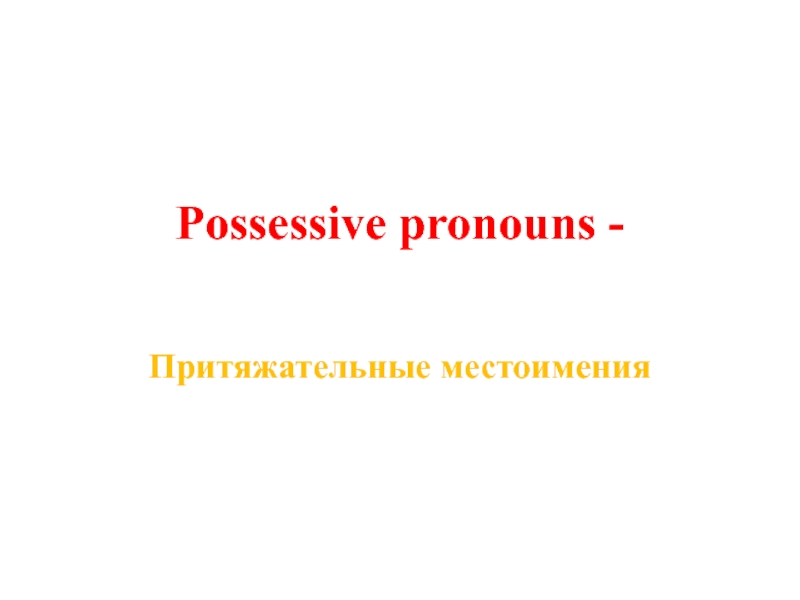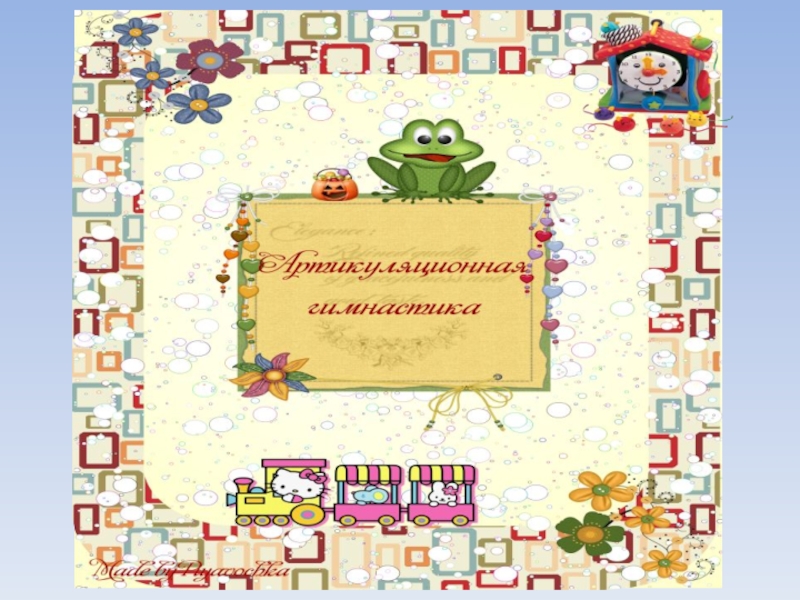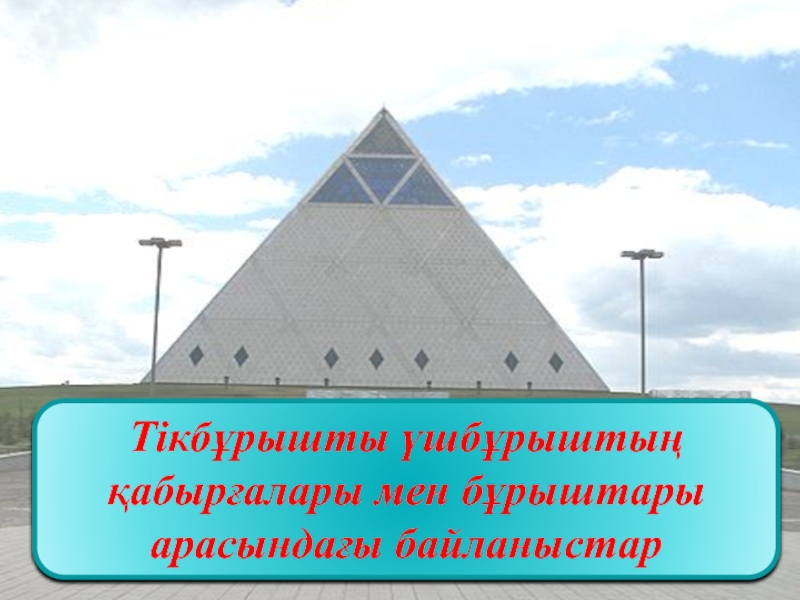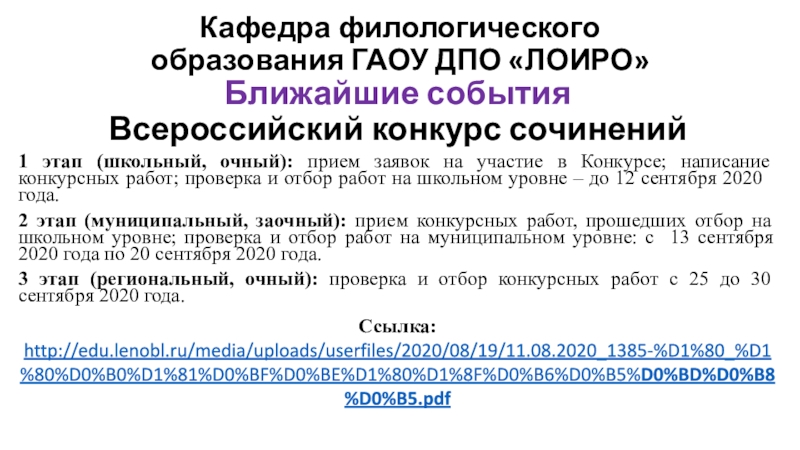Разделы презентаций
- Разное
- Английский язык
- Астрономия
- Алгебра
- Биология
- География
- Геометрия
- Детские презентации
- Информатика
- История
- Литература
- Математика
- Медицина
- Менеджмент
- Музыка
- МХК
- Немецкий язык
- ОБЖ
- Обществознание
- Окружающий мир
- Педагогика
- Русский язык
- Технология
- Физика
- Философия
- Химия
- Шаблоны, картинки для презентаций
- Экология
- Экономика
- Юриспруденция
Effect of word order on yes/no questions in English as compared to Russian
Содержание
- 1. Effect of word order on yes/no questions in English as compared to Russian
- 2. Why English and Russian?HistorySyntaxContrastWhy yes/no questions?TypesViewsIntonationsBackground
- 3. In yes/no questions, English is neutral (unmarked
- 4. AuxiliariesDo, be, havePassive ‘by-’Modals‘objazan’ (‘must’), ‘mogu’/‘mog’ (‘can’/’could’
- 5. Special caseMain verb “be”VSO in EnglishZero form
- 6. SimilaritiesTypesTagsIn EnglishIn RussianDifferencesEcho questionsEcho and tag yes/no questions
- 7. Inertness of English verbs[cp ? [tp she
- 8. The emotive experimentKyril T. Holden and John T. Hogan (1993)Intonations in yes/no questions
- 9. PF versus LF in EnglishRising versus falling
- 10. Svetozarova writes:It is important to emphasise that,
- 11. Support of hypothesisFuture implicationsResearch beyond yes/no
- 12. Скачать презентанцию
Why English and Russian?HistorySyntaxContrastWhy yes/no questions?TypesViewsIntonationsBackground
Слайды и текст этой презентации
Слайд 2Why English and Russian?
History
Syntax
Contrast
Why yes/no questions?
Types
Views
Intonations
Background
Слайд 3In yes/no questions, English is neutral (unmarked a la Jakobson)
because it tends to retain its basic word order, whereas
Russian is emphatic (marked) because it tends toward different word ordersHypothesis
Слайд 4Auxiliaries
Do, be, have
Passive ‘by-’
Modals
‘objazan’ (‘must’), ‘mogu’/‘mog’ (‘can’/’could’ or ‘may’/‘might’), ‘budu’
(‘will’/‘would’ or ‘shall’), and ‘dolžen’ (‘should’)
Behavior
Inversion with subject
Particle “li”
Fronting
Presuppositions
Inverse yes/no
questionsСлайд 5Special case
Main verb “be”
VSO in English
Zero form of “be” (est’[PRS])
Noncanonical
“There”
Is
there a paper on the
table?Tam est’ bumaga na stole?
“It”
Is it the paper that we are talking about today?
Eto bumaga, o kotoroj my govorim segodnja?
Inverse yes/no questions (cont.)
Слайд 6Similarities
Types
Tags
In English
In Russian
Differences
Echo questions
Echo and tag yes/no questions
Слайд 7Inertness of English verbs
[cp ? [tp she [t [vp swims
fast]]]] => [cp doesi [tp she [t ti [vp swim
fast]]]]Russian violation of c-command?
[cp ? [tp ona [t [vp plavajet bystro]]]] => [cp plavajeti li [tp ona [t [vp ti bystro]]]]
PF versus LF
Mat’ ljubit doč’.
Minimalist view
Слайд 8The emotive experiment
Kyril T. Holden and John T. Hogan (1993)
Intonations
in yes/no questions
Слайд 9PF versus LF in English
Rising versus falling pitch
High-rise versus low-rise
Long
low-rise versus narrow low-rise (Levis 1999)
Intonational effect in Russian
Functional Sentence
PerspectiveTheme-(transition)-rheme
Topic Focus Articulation
Topic and comment (discourse-neutral information and focus)
Intonations (cont.)
Слайд 10Svetozarova writes:
It is important to emphasise that, whatever means are
employed in marking special sentence stress, whether purely phonetic or
positional, the effect is in principle the same, namely a kind of “augmented meaning”, the actualisation of certain presuppositions… Thus, sentence intonation in Russian, in the form of one of its most important subsystems – sentence stress – not only organises words into a single meaningful unit, but, by accomplishing this in a variety of ways, succeeds in transmitting extremely important information of a pragmatic nature as well (sic) (1998:269f.).Intonations (cont.)
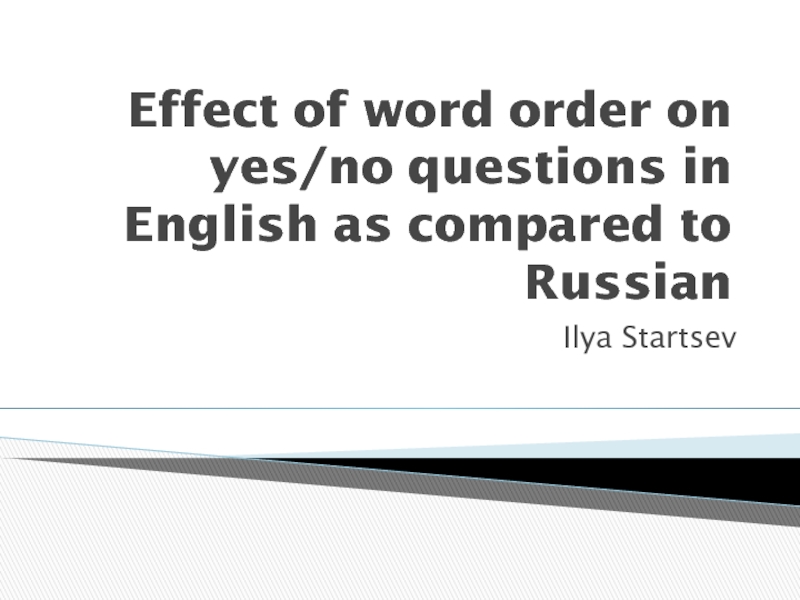
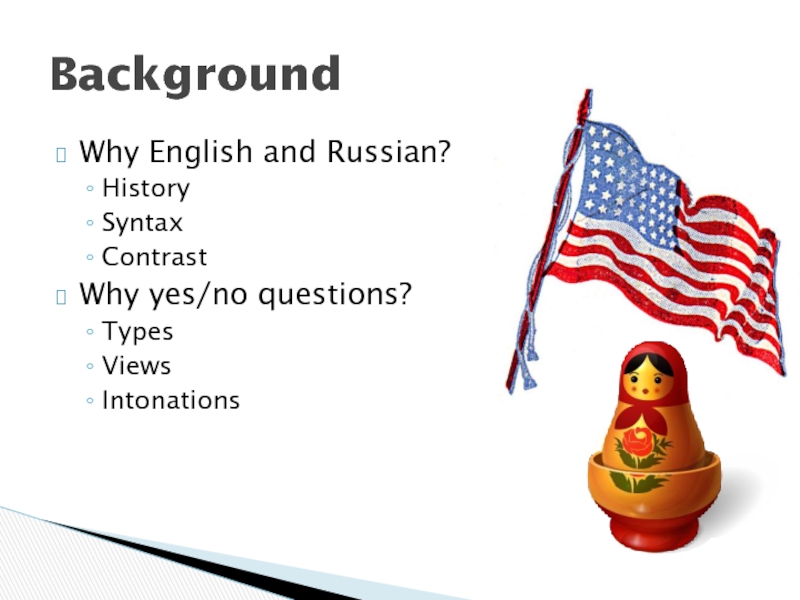
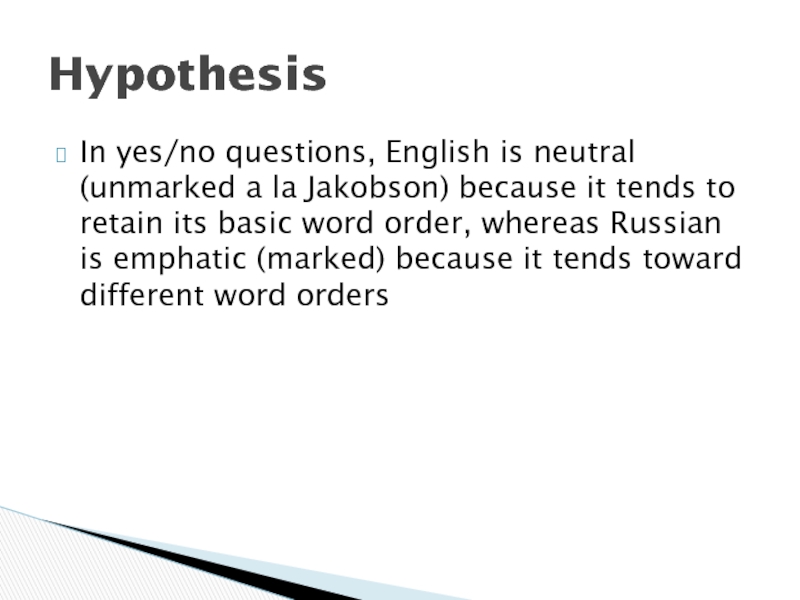
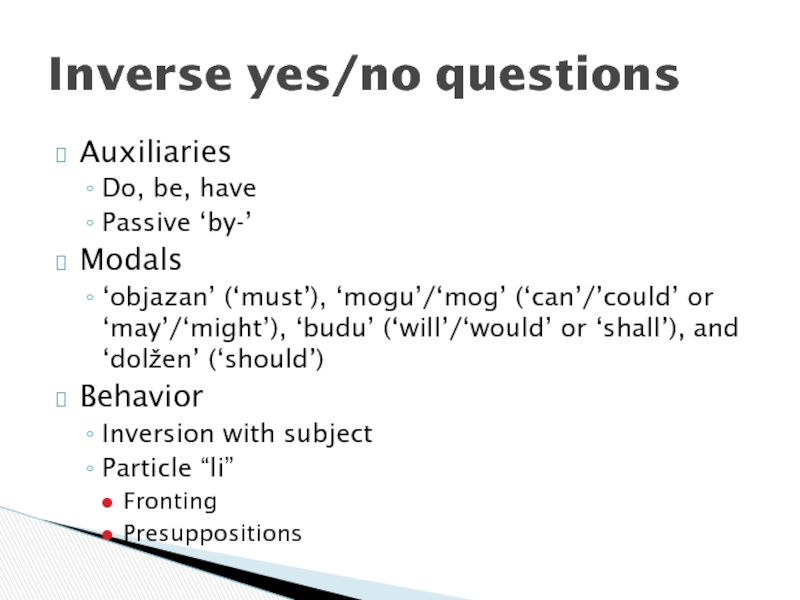
![Effect of word order on yes/no questions in English as compared to Russian Special caseMain verb “be”VSO in EnglishZero form of “be” (est’[PRS])Noncanonical“There”Is there Special caseMain verb “be”VSO in EnglishZero form of “be” (est’[PRS])Noncanonical“There”Is there a paper](/img/tmb/3/252851/41af628c27c2e78849b5300785f3c778-800x.jpg)
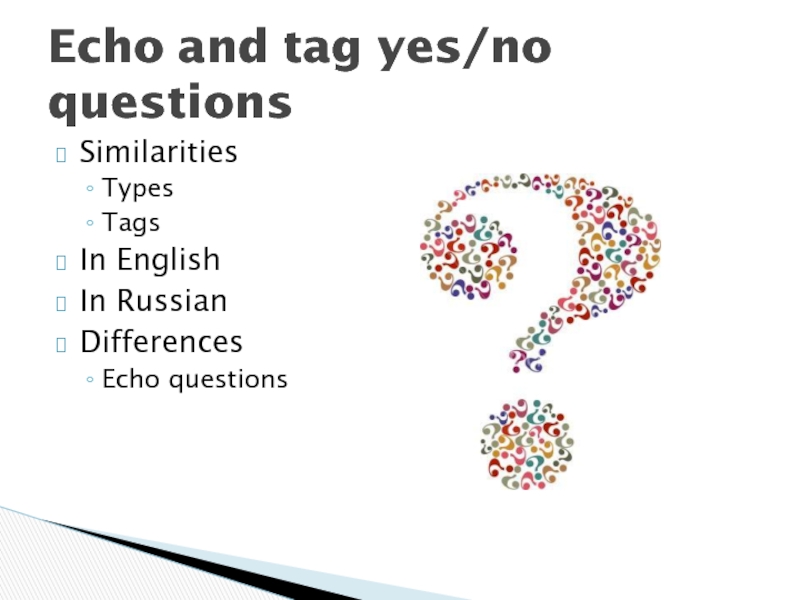
![Effect of word order on yes/no questions in English as compared to Russian Inertness of English verbs[cp ? [tp she [t [vp swims fast]]]] Inertness of English verbs[cp ? [tp she [t [vp swims fast]]]] => [cp doesi [tp she [t](/img/tmb/3/252851/9a21c00841117905616a0614542c35d9-800x.jpg)
